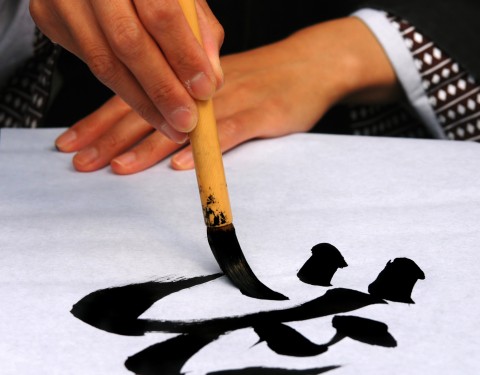Giving compliments makes people feel important and happy, and compliments are a great way to express your positive feelings. However, “When in Rome, do as the Romans do!” There’s a particular way that people give and respond to compliments in Japanese.
Before giving compliments in Japanese, keep this in mind: Humbleness and modesty are the most important values in Japanese culture. Therefore, it’s considered bad manners to show off and explicitly exhibit your abilities and achievements. For this reason, people aren’t used to receiving a lot of praise.
However, it’s still a good thing to give a compliment when someone has great traits or has done wonderful things. Giving compliments is a useful way to improve communication and your relationships with others.
Let’s learn the most useful Japanese compliments and how to give them at JapanesePod101.com!
Table of Contents
- Complimenting Someone’s Appearance
- Complimenting Someone’s Work
- Complimenting Someone’s Skills
- How to Make Your Compliments Sound More Sincere
- What to Expect After Giving Compliments
- Conclusion: How JapanesePod101 Can Help You Learn More Japanese
1. Complimenting Someone’s Appearance
In Japanese culture, compliments aren’t given directly, contrary to compliments in other cultures (such as American). Compliments in Japanese tend to be mild, indirect, and euphemistic.
1 – Hair
Casual:
髪の毛切った?ショートヘア似合うね。かわいい (かっこいい) ね!
Kaminoke kitta? Shōto hea niau ne. Kawaii (kakkoii) ne !
“Did you cut your hair? The short hairstyle suits you well. You are cute (handsome)!”
The Japanese compliment above is in the casual style. In order to say it politely, change the predicate 述語 (Jyutsugo) to the polite honorific 丁寧語 (Teineigo).
Polite:
髪の毛切りましたか。ショートヘア似合いますね。かわいい (かっこいい) ですね!
Kaminoke kirimashita ka. Shōto hea niaimasu ne. Kawaii (kakkoii) desu ne !
2 – Outfit
Casual:
そのシャツいいね。
Sono shatsu ii ne.
Polite:
そのシャツいいですね。
Sono shatsu ii desu ne.
Meaning: “That shirt is good.” (“Your shirt looks good.” )
Casual:
そのスカート素敵だね。どこで買ったの?
Sono sukāto suteki da ne. Doko de katta no?
Polite:
そのスカート素敵ですね。どこで買いましたか。
Sono sukāto suteki desu ne. Doko de kaimashita ka.
Meaning: “That skirt is nice. (Your skirt looks nice.) Where did you buy it?”
3 – Smile
Casual:
笑顔が素敵だね /かわいいね。
Egao ga suteki da ne / kawaii ne.
Polite:
笑顔が素敵ですね /かわいいですね。
Egao ga suteki desu ne / kawaii desu ne.
Meaning: “(Your) smile is nice / pretty.”
4 – General
Casual:
彼女はとても美人だね。
Kanojo wa totemo bijin da ne.
Polite:
彼女はとても美人ですね。
Kanojo wa totemo bijin desu ne.
Meaning: “She is very beautiful.”
Casual:
彼は背が高くてハンサムだね。
Kare wa se ga takakute hansamu da ne.
Polite:
彼は背が高くてハンサムですね。
Kare wa se ga takakute hansamu desu ne.
Meaning: “He is tall and handsome.”
How to compliment a Japanese girl: Egao ga totemo kawaii ne. = “Your smile is very cute.”
2. Complimenting Someone’s Work
In Japanese business settings, people typically use the formal and honorific language. Some people use casual language toward younger subordinates, but you should never use casual language when talking to your boss, seniors, or clients, because it’s very rude and inappropriate. Following is a list of the best compliments in Japanese for the workplace.
5 – Good job! / Well done!
Casual: 良くやったな!(Yoku yatta na!)
Polite: 良くやりましたね!(Yoku yarimashita ne!)
6 – Great work! / Excellent! / Bravo!
Casual: お見事!(O-migoto!)
Polite: お見事です!(O-migoto desu!)
7 – (Your) presentation today was very good.
Casual: 今日のプレゼンとても良かったよ。(Kyō no purezen totemo yokatta yo.)
Polite: 今日のプレゼンとても良かったです。(Kyō no purezen totemo yokatta desu.)
8 – That’s a nice idea with pretty good sense.
Casual: なかなかセンスの良いアイディアだね。(Nakanaka sensu no ii aidia da ne.)
Polite: なかなかセンスの良いアイディアですね。(Nakanaka sensu no ii aidia desu ne.)
9 – You are amazing to have solved that difficult matter easily.
Casual: あの難しい案件を簡単に解決させてすごいね。(Ano muzukashii anken o kantan ni kaiketsu sasete sugoi ne.)
Polite: あの難しい案件を簡単に解決させてすごいですね。(Ano muzukashii anken o kantan ni kaiketsu sasete sugoi desu ne.)
* すごい (sugoi) is a Japanese adjective which can be translated as “great,” “amazing,” “wonderful,” “cool,” etc. This is often used when something or someone has strong abilities.
The casual phrase すごいね (Sugoi ne) and polite phrase すごいですね (Sugoi desu ne) are very useful phrases you can use in many situations. They can be used just like “Wow!” in English.
Here’s a compliment for a Japanese businessman: Kyō no purezen totemo yokatta desu. = “Presentation today was very good.”
3. Complimenting Someone’s Skills
10 – The meal is very delicious! You are good at cooking. (You are a good cook!)
Casual: ご飯がとてもおいしいよ!料理上手いね!(Gohan ga totemo oishii yo! Ryōri umai ne!)
Polite: ご飯がとてもおいしいです!料理上手いですね!(Gohan ga totemo oishii desu! Ryōri umai desu ne!)
11 – You have skills and a good sense of photography.
Casual: 写真のスキルがあって、センスもいいね。(Shashin no sukiru ga atte, sensu mo ii ne.)
Polite: 写真のスキルがあって、センスもいいですね。(Shashin no sukiru ga atte, sensu mo ii desu ne.)
12 – Your English is very fluent!
Casual: 英語がすごくペラペラだね!(Eigo ga sugoku perapera da ne!)
Polite: 英語がすごくペラペラですね!(Eigo ga sugoku perapera desu ne!)
*ペラペラ (Perapera) is a Japanese onomatopoeia which expresses a state of fluent speech.
13 – You run really fast! You could participate in the Olympic Games!
Casual: 足がすごく速いね!オリンピックに出られそうだね!(Ashi ga sugoku hayai ne! Orinpikku ni deraresō da ne!)
Polite: 足がすごく速いですね!オリンピックに出られそうですね!(Ashi ga sugoku hayai desu ne! Orinpikku ni deraresō desu ne!)
14 – You are (so) amazing that you can do anything!
Casual: 何でもできてすごいね!(Nan demo dekite sugoi ne!)
Polite: 何でもできてすごいですね!(Nan demo dekite sugoi desu ne!)
Good handwriting skills are praised in Japan as it’s considered a skill of the well-educated and sophisticated.
4. How to Make Your Compliments Sound More Sincere
Sometimes, compliments sound fake when you praise too much or only use words. Here are some tips for giving sincere Japanese compliments to avoid sounding empty.
1 – Avoid Direct and Exaggerated Expressions
As mentioned in the introduction, many Japanese people aren’t used to receiving compliments, especially when they’re very direct.
It becomes more natural and sounds real when you make a comment with euphemistic and indecisive expressions, and avoid using straightforward words.
For example:
Not Good
豪華なスカートを履いていますね。
Gōka na sukāto o haite imasu ne.
“You are wearing a gorgeous skirt.”
Good
ファッションのセンスが素敵ですね。
Fasshon no sensu ga suteki desu ne.
“Your fashion sense is nice.”
Not Good
君の瞳はとても美しいよ。
Kimi no hitomi wa totemo utsukushii yo.
“Your eyes are very beautiful.”
Good
笑顔がとても素敵だね。
Egao ga totemo suteki da ne.
“Your smile is very nice.”
2 – Don’t Praise; Tell Instead
When you compliment someone in Japanese, it sounds more natural and real when you tell them casually instead of actually praising them. The key point is to say positive things to him/her casually and naturally in the flow of conversation.
For example:
When a boy likes a girl, he shouldn’t just give her compliments one after another whenever he wants: “You are cute today, too,” “You’re so nice,” “You have a pretty hairstyle.”
However, he can give positive comments during a conversation if the situation allows for it:
At a cafe, if the girl he likes pours water to refill his glass, he can say ありがとう、優しいね (arigatō, yasashii ne.), which means “Thank you, you are kind.”
Or, when she shows him pictures of her trip, he can tell her 楽しそうだね、笑ってる顔がとてもかわいいよ(tanoshisō da ne, waratte ru kao ga totemo kawaii yo.), which means “It looks fun, your smiling face is very cute.”
3 – Refer to Someone to Add Credit
When you give compliments, refer to someone else’s comment in order to avoid direct compliments, and to add credit to make it more realistic.
For example:
田中さんは仕事ができる人だと上司が言っていました。私も本当にそう思います。
Tanaka-san wa shigoto ga dekiru hito da to jōshi ga itte imashita. Watashi mo hontō ni sō omoimasu.
“My boss said that Tanaka-san is someone who is good at his job. I really think so, too.”
みんなも言っているように、君はとても優しいね。
Minna mo itte iru yō ni, kimi wa totemo yasashii ne.
“As everyone is saying, you are very thoughtful.”
5. What to Expect After Giving Compliments
As mentioned, modesty and humbleness are important values in Japanese culture, and Japanese people aren’t used to receiving a lot of compliments or direct expressions of praise from others.
While American people usually receive compliments with confidence and pride, Japanese people often receive them with hesitance and a shy feeling. Some Japanese people may reply with negative or denial phrases to express their humbleness, rather than admitting their good ability/quality. Doing so would be considered boasting and showing pride.
Response Examples :
1.
Casual: 全然そんなことないよ (zenzen sonna koto nai yo)
Polite: 全然そんなことないです (zenzen sonna koto nai desu.)
Meaning: “(I’m) not (that) at all.”
This phrase is one of the most typical responses to compliments in Japanese. Often, compliments are met with denial, and 全然〜ない (zenzen — nai) is a common expression which means “not — at all.”
A:
ドイツ語をペラペラ話せてすごいね!
Doitsugo o perapera hanasete sugoi ne!
“You are great that you can speak German fluently!”
B:
全然すごくないよ。
Zenzen sugoku nai yo.
“I’m not great at all.”
2.
Casual: もっと上手くできたのだけど… (Motto umaku dekita no da kedo…)
Polite: もっと上手くできたのですが… (Motto umaku dekita no desu ga…)
Meaning: “I could have done better…”
This is another typical response to Japanese compliments. Saying that he or she could have done better is a way of showing modesty and that he/she needs to keep making an effort rather than satisfying the status quo.
A:
今日のプレゼンとても良かったですよ!
Kyō no purezen totemo yokatta desu yo!
“Your presentation was very good today!”
B:
そうですか?もっと上手くできたのですが…
Sō desu ka? Motto umaku dekita no desu ga…
“Was it? I could have done better…”
3.
Casual: (OOOの)足元にも及ばないよ ([OOO no] ashimoto ni mo oyobanai yo)
Polite: (OOOの)足元にも及びません ([OOO no] ashimoto ni mo oyobimasen)
Meaning: “can’t hold a candle to (OOO)” / “nowhere near as good as (OOO)”
This phrase is usually used in formal settings to respond to compliments. It literally means “I don’t even reach (someone’s) feet.” It expresses modesty by referring to someone better than you, and often, it’s the person who gave the compliment. This phrase is also used as お世辞 (O-seji), or “flattery,” to flatter a boss or client for smoother communication and relationships in traditional Japanese business customs.
Boss:
今日の商談良くやったな!君は強い交渉力を持っている。
Kyō no shōdan yoku yatta na! Kimi wa tsuyoi kōshōryoku o motte iru.
“Well done with the business today! You have a strong negotiation skill.”
Subordinate:
部長の足元にも及びません!
Buchō no ashimoto ni mo oyobimasen!
“I’m nowhere near as good as you, Director!”
For more useful phrases for business, please check out Phrases for Doing Business Successfully and Must-Know Expressions for Agreeing and Disagreeing.

The important Japanese value of modesty is reflected in phrases toward compliments.
6. Conclusion: How JapanesePod101 Can Help You Learn More Japanese
In this article, we introduced the most useful Japanese compliments and how to give/respond to compliments in Japanese. Did you find it interesting that Japanese compliments are quite a reflection of Japanese culture? Always remember not to start bragging about your skills or traits after receiving a compliment in Japan!
If you would like to learn more about the Japanese language and other useful Japanese phrases for different situations, you’ll find much more helpful content on JapanesePod101.com. We provide a variety of free lessons for you to improve your Japanese language skills.
Here’s some more information about compliments in Japanese with audio:
- Top 10 Compliments You Always Want to Hear in Japanese
- Making a Compliment
- Top 15 Compliments You Always Want to Hear
Together with compliments, learn the Top 20 Words for Positive Emotions!
And that’s not all! Learn faster and enjoy studying Japanese at JapanesePod101.com!
Before you go, let us know in the comments if there are any Japanese compliments you still want to know! We’d be glad to help, and look forward to hearing from you!
















